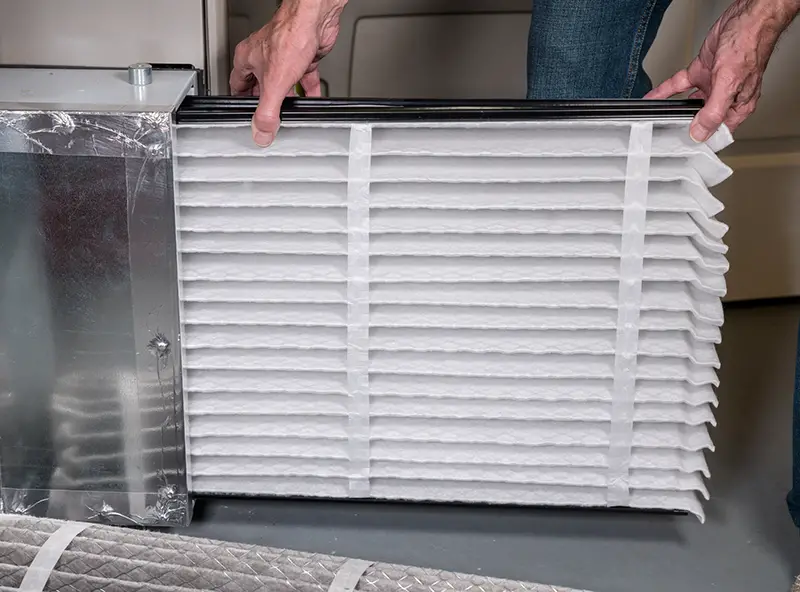Click here to get this post in PDF
Finding the right air filter for your home or office can be a daunting task. It is essential to consider not only the size of the filter but also its MERV rating. The Minimum Efficiency Reporting Value (MERV) rating system is used to measure the effectiveness of air filters in capturing pollutants, including mold spores and other airborne particles.
When selecting an air filter, there are several factors you should take into account, such as efficiency, thickness, size requirements, cost, health needs, and more. This article will provide key points to remember when looking at MERV ratings of air filters so that you can make an informed decision on which one best suits your home’s needs.
Understand the MERV Rating System
The Minimum Efficiency Reporting Value (MERV) rating system is used to measure the effectiveness of air filters in capturing pollutants, including mold spores and other airborne particles. A higher MERV rating indicates a better filter that can capture smaller particles more efficiently.
Investigate Your Needs
Before shopping for a new air filter, you should consider the size of your home, the type of air pollutants in your environment, and any health concerns related to airborne contaminants. Knowing what kind of particles need filtering is essential when selecting an appropriate MERV rating.
Consider Filter Efficiency
When choosing an air filter, ensure it has a high MERV rating that can adequately capture particulates in the air. A MERV 8 or higher may be necessary to effectively remove pollen, dust mites, pet dander, and other allergens from the air.
Check Filter Size Requirements
The size requirements of the filter must also be considered when selecting one with a specific MERV rating. If the right size filter is installed, it will be more effective and can increase the performance of your heating and cooling system.
Consider Filter Thickness
The filter’s thickness must also be considered when selecting a MERV rating. A thicker filter may have a higher MERV rating, but if it is too wide to fit in the system, it will not work correctly.
Look at Air Flow Requirements
High-efficiency air filters with a high MERV rating require less airflow for proper function; however, they can reduce the amount of air that passes through the HVAC system if they are too restrictive. Be sure to select an appropriate filter that fits within your AC unit’s airflow requirements.
Consider Health Needs
If you suffer from allergies or asthma, an air filter with a higher MERV rating will help reduce these symptoms. A MERV 13 or 14 is recommended for those susceptible to respiratory illnesses and indoor pollutants.
Balance Cost and Quality
When selecting an air filter, it is essential to consider the cost of the filter, as well as it’s quality. High-efficiency filters with a high MERV rating may be more expensive, but they can also pay off in reduced energy costs and improved air quality over time.
Check Filter Maintenance Requirements
Air filters should be checked regularly and replaced to keep your system running efficiently. Higher-efficiency filters with a higher MERV rating may need to be replaced more frequently than lower-efficiency filters.
Understand Manufacturers’ Guidelines
Before selecting an air filter, read the manufacturer’s guidelines and understand how it can affect your system’s performance. This will help you avoid any unnecessary problems in the future.
Conclusion
Considering all these factors when looking at the MERV rating of an air filter, you can ensure that your HVAC system runs effectively and efficiently while providing clean, healthy air for your home.
You may also like: How To Improve Office Air Quality
Image source: Depositphotos.com

